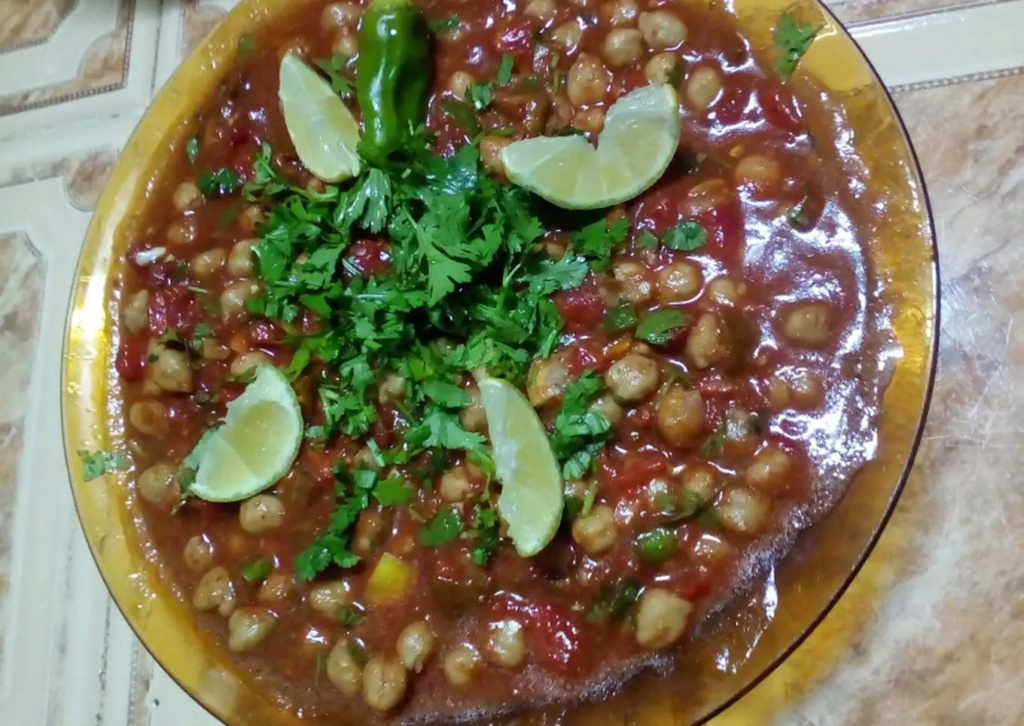"Dobara" .. compete with pizza in Algeria

Tunisians compete with their Algerian neighbors in favoring spicy foods, so that they almost put pepper even in milk, except in three Algerian cities, one of which is adjacent to Tunisia, where the hot taste reaches its climax in a sacred popular dish in these cities, so that it is not dispensed with in the month of Ramadan. Ramadan special food.
"Dobara" is considered a sacred popular food in the Algerian cities of "Biskra", "Wadi Souf" and "Batna", so that it is not dispensed with in the month of Ramadan.
These cities are "Biskra", "Wadi Souf" and "Batna", all of which are at least 400 kilometers from Algiers to the south and east, and this food is called "Dobara" with the addition of the adjective "Biskaria" or "Soufia" relative to my city. Biskra and Wadi Souf, which compete for the monopoly of ownership of the Dobara, and one of the manifestations of this competition is the attempt of each city to give a special flavor to its Dobarth, Biskra tends to adopt chickpeas and Wadi Will tends to beans.

Dobara consists of chickpeas or beans boiled in water containing spices, salt and olive oil. It is placed in a plate with onions, tomatoes and many peppers of all kinds, which makes eating it for those who are not accustomed to it closer to punishment/torment than to pleasure. We have seen some of these people in Batna, and we have touched their coughing and tears in light of the laughter of those present. This happened with two Chinese youths, one of whom said: "The spicy taste is not strange for Chinese cuisine, but not to this degree... This is terrorism."
Here, the Iraqi playwright Jawad al-Asadi, who accompanied us to the "Dobara" stores, which is located behind the theater of the city of "Batna", admitted that he does not like food without pepper or harissa, but not with the dose that "Dobarah" is available in. He says: "I got used to eating Dobara early since I came to "Batna", it gives me a lot of energy and keeps me from eating until the evening, but I make sure that it is with a little pepper.
At that moment, a young man from the city got up and asked the "al-Hamamsi" - that's how the "Dobara" seller is called - to make the pepper double and he started drinking the plate without bread, which doubled our surprise. We expected him to stop at any moment, but he drank the whole plate and turned to us in defiance. : "I swear that I am ready to eat two more dishes without drinking water, neither during eating nor five hours after it."
Dobara consists of chickpeas or beans boiled in water containing spices, salt and olive oil. It is placed in a plate with onions, tomatoes and many peppers of all kinds.
The young man told "Ultra Sawt" that he eats dubara every day, including the days of fasting in the month of Ramadan. We asked al-Hammasi about this, and he said, "People's turnout for dobara in Ramadan is no different from their turnout for it in other months." He added, "It is ready three hours before breakfast, so its lovers come to take it home, either in special bags or in utensils that they bring with them."
We deliberately went to the pizza shops opposite “Al-Hamamisya” Street to monitor the reasons for the demand of young people for it compared to their demand for “Al-Dobarah” shops. Sufyan, 21 years old, told us that he “eats pizza about five times a month, compared to twelve times for Al-Dobarah.” He explains: "The price of a pizza is the same as the price of a dubara, 150 dinars, which equals one dollar, but I prefer a dubarah, especially in cold seasons."
Hajj Rabah, who inherited the "Al-Dobara" store from his late father in 1989, said that he "starts receiving customers immediately after the end of the dawn prayer in mosques, until the stock runs out, usually before three o'clock, and it is rare to find a store open after This time."
Among the anecdotes that we encountered in the endeavor of circling the “Al-Dobara” shops in “Batna”, including those supervised by cooks from the cities of “Biskra” and “Wadi Souf”, is the talk of the young Ezz El-Din, 29 years old, about his late father’s relationship with the Dobara. He says: He used to work in France and only visited us once a year, when he ate Dubara on Al Hamamsiyeh Street before going home, and in his last years he had stomach cancer, which made the doctor make sure that we give him food free of spices, especially hot, but one day he ignored us and ate Dubara. It was the last thing that entered his stomach.”
Source: websites

